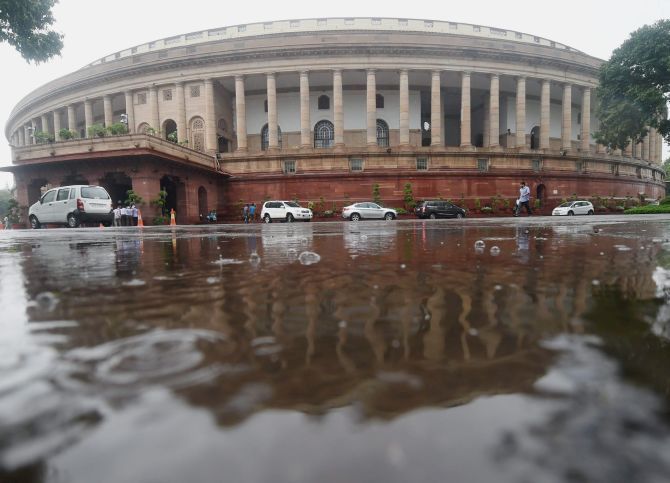 Ahead of the monsoon session of Parliament beginning next week, the government has reached out to the Congress for passage of the long-pending GST bill in Rajya Sabha where it does not have a majority.
Ahead of the monsoon session of Parliament beginning next week, the government has reached out to the Congress for passage of the long-pending GST bill in Rajya Sabha where it does not have a majority.
Parliamentary Affairs Minister Ananth Kumar has already held telephonic talks with leader of the opposition in the Upper House Ghulam Nabi Azad and Deputy leader of the Congress in the House Anand Sharma and formal talks are likely to take place shortly.
When contacted, Sharma made a strong pitch for evolving a "genuine" common market through the key tax reform, insisting that the GST should be both "meaningful and substantive".
The government, he said, needs to "ring fence" the GST rate so as not to burden the common man.
The GST, which is being touted as the most significant reform in indirect tax since independence, is being held up in Rajya Sabha because of stiff opposition by the Congress, which among other things is demanding a Constitutional cap on the GST rate.
Dismissing suggestions that the Congress was against the bill, he said the party is the author of the bill and its only concern is that it should be "meaningful and substantive".
Sharma said the Congress also wants clarification from the government on taxability of various goods like petroleum, alcohol, tobacco and electricity.
Besides the, government needs to clarify whether the GST would subsume various cesses including the Swachh Bharat cess.
The government plans to push the Constitution Amendment bill in Rajya Sabha for rollout of GST in the monsoon session beginning July 18. The bill was approved by Lok Sabha earlier.
“There has to be firm ring fencing of the GST cap. It is for the government to give proposals to address the issue," Sharma said, adding "ball is in their court".
He further said the Congress leadership would take a "considered view", once it hears from the government.
"We have never said we will not talk. Once we know government's stand, we will see where meeting point is there and Congress leadership will take a considered view".
He regretted that the government, instead of engaging the Congress in a constructive dialogue on the GST for a consensus chose to be "confrontationist".







